Student Blog
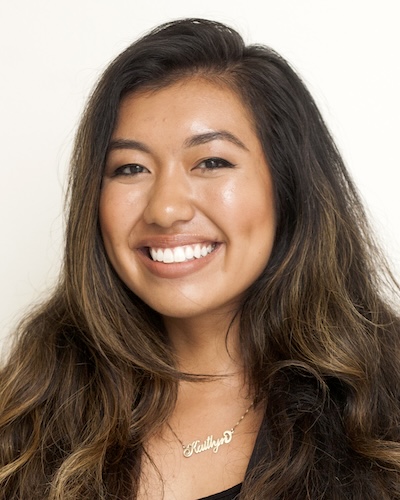
Aloha Assistance Dogs of Hawaii!: My First Level II Fieldwork Experience ⟩
September 6, 2017, by Kaitlyn
Hawaii, dogs, and OT . . . if this sounds like the ultimate dream trifecta of a Level II Fieldwork then let me be the one to tell you that it is actually real (because I lived it!). This past summer, I am grateful to say that I spent 3 months in Maui with Assistance Dogs of Hawaii for my first Level II Fieldwork experience.
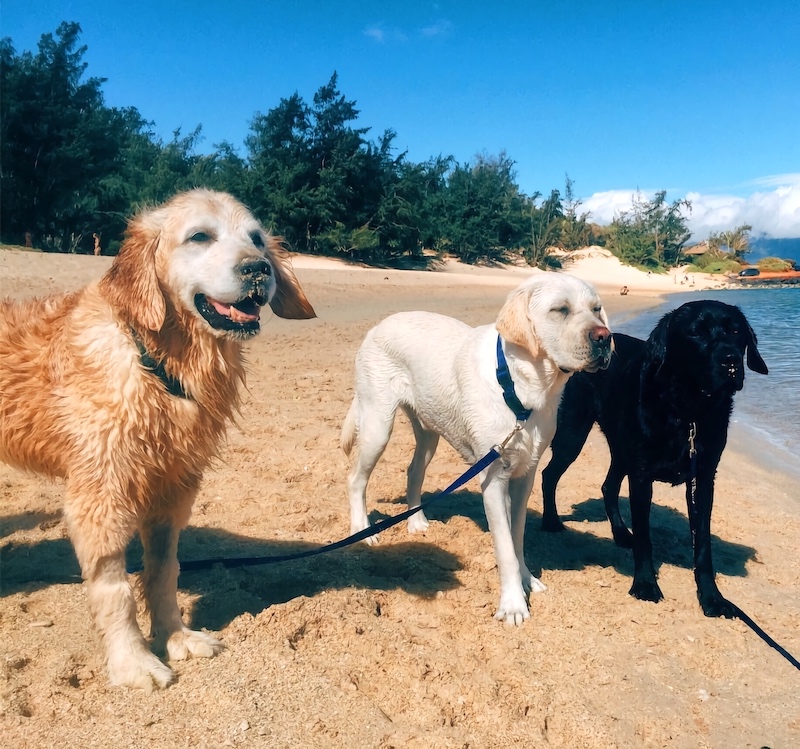
Pictured (from left to right): Ford, Wrangler, and Wesley during a trip to Spreckelsville Beach in Paia!
This journey began in March of 2017, when I first underwent an application and interview process. By the end of that month, I began to mentally prepare myself for what would be a life-changing, temporary move across the Pacific Ocean to work with one the most inspiring non-profit organizations!
Assistance Dogs of Hawaii, founded by Mo and Will Maurer, is a fully accredited, 501(c)3 non-profit organization that provides people with physical disabilities specially trained dogs to help them live more independent lives. I was lucky enough to work under the supervision of my clinical instructor, Dr. Cate Dorr, who is a certified dog trainer and occupational therapist. Between Assistance Dogs of Hawaii and working alongside Dr. Cate Dorr, I knew that it was going to be a summer full of growing and learning.
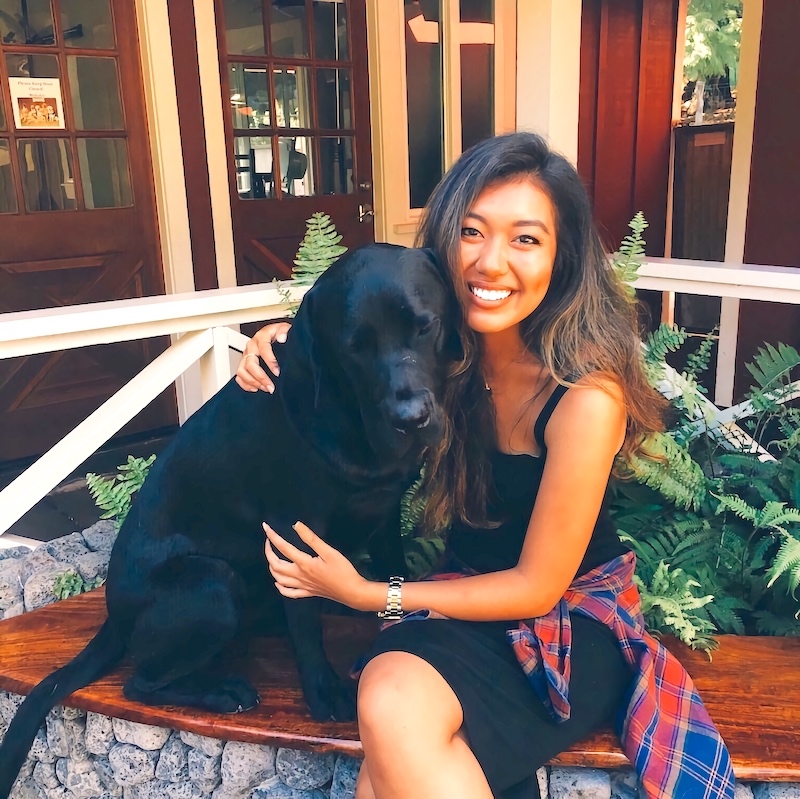
Walker (dog pictured above) weighed in at about 90 pounds! He was the biggest of the bunch with an equally big heart!
In the 3 months that I was in Maui, I was exposed to a multitude of experiences and learning opportunities. Just to name a few, I learned how to care for and train service dogs (my preview to motherhood), participated in Team Training Camp where I learned the skills of a hospital facility dog handler, conducted therapy visits, created and implemented a week-long camp dedicated to children with limited mobility called Camp Bow Wow (which was featured in Maui News!), and of course, worked with patients of all ages and diagnoses implementing occupational therapy and Canine-Facilitated Interventions (a term coined by Dr. Dorr herself!).
Towards the end of the summer, we were even provided with the opportunity to visit foundations and hospitals such as Kapiolani, Queen’s, and Shriners, all of which are located on Oahu with our (at the time) 10-week old puppies! During that same trip to Oahu, we also met with Catia Garrell, one of the founders for Thrive for Life (and an USC OT grad!) to see a home modification project in progress. At the site, we got to see how accessible home modifications are made through an OT lens, which is just another piece of evidence that since the OT scope is so broad, we should never be scared to think outside of the box!
When I wasn’t working or with the dogs, I explored the island and really immersed myself in the beauty of Hawaii (and became really tan while doing so).

On our last day of work, we spotted this huge rainbow and took it as a symbolic ‘farewell’ from Maui.
Out of all the amazing things that I got to do while I was in Hawaii, I will say that working with patients alongside my four-legged friends proved to be something that has profoundly changed my heart. For example, one of my patients broke dog treats in order to improve strength in his hands post incomplete C5-C6 spinal cord injury and another patient with spina bifida took steps alongside one of our service dogs in training to help him engage in tabletop ambulatory level activities. Seeing the motivation and intrinsic desire to do better in therapy sessions with the presence of dogs really opened my eyes to how beneficial and essential this emerging practice is to the profession of occupational therapy.
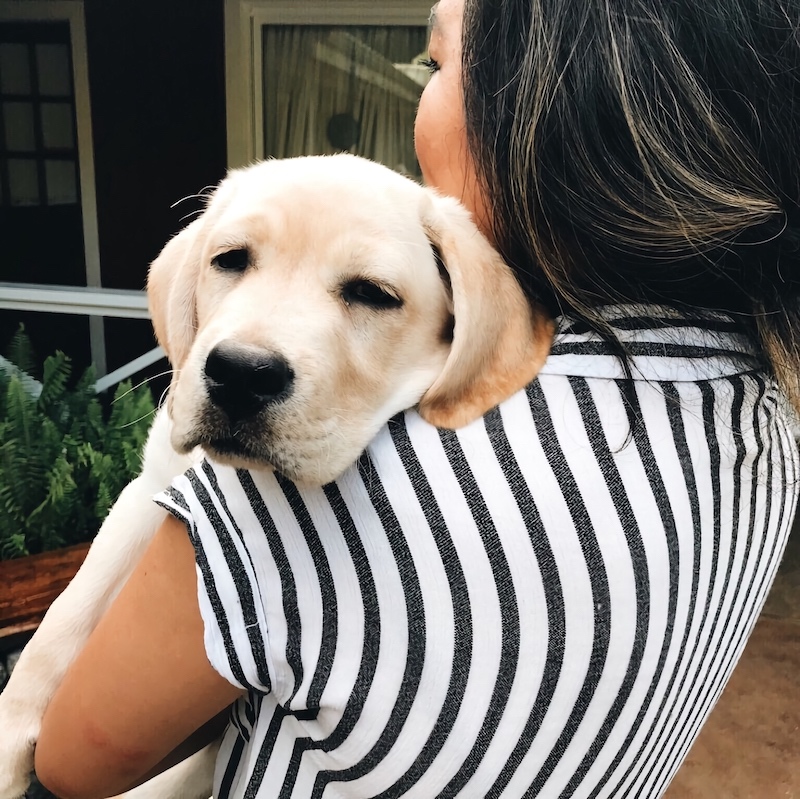
Jewel and her brother Jasper flew in to Maui at just 8 weeks old! Training began right away!
All in all, I have learned so much about dogs, occupational therapy, Canine-Facilitated Interventions, people, and myself from this Level II Fieldwork experience. Here are a few:
- Be open to every Level II Fieldwork placement possibility. Prior to receiving an offer from Assistance Dogs of Hawaii, I was looking into rehabilitation hospitals and clinics across the country, ranging from places like Nebraska to the Bay Area to New York. I knew that I wanted to expose myself to the best learning experience while being in OT school and for me that meant opening my mind to every option out there. While those did not necessarily work out for me at first, the opportunity with Assistance Dogs of Hawaii followed soon thereafter. When one door closes, it just means that there is a better door waiting for you.
- Allow yourself to make mistakes and learn from them. I am so far from perfect and I know it. The beauty of being a fieldwork student is that it is okay to make mistakes . . . so long as you learn from them and have a positive attitude about it! Your clinical instructor is there to teach and support you through these learning curves, so don’t be too hard on yourself when you don’t know everything.
- As much as you teach your patients, let your patients teach you too. I met the most inspiring individuals during my time in Hawaii and I can confidently say that I am a changed person because of them. My patients, my patients’ families and friends, and the people of Hawaii have taught me the true definitions of what it means to be resilient, compassionate, and happy. Despite any hardships they were facing during that time, they always managed to have a huge smile accompanied by a huge heart.
I’d like to end this post with one of my favorite quotes from a patient that I worked with that had ALS. During our last session together, she told me, “Kaitlyn, sometimes life will not treat you kindly. When this happens — because it will — just be strong and be kind back regardless. You will be doing amazing work as an OT, and you will change so many lives whether you know it or not.”
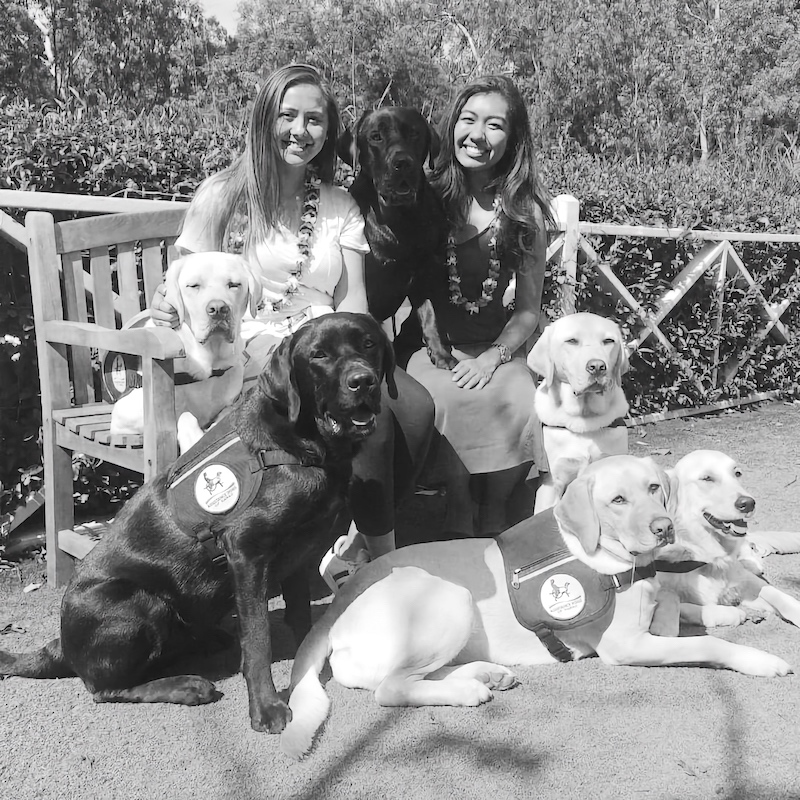
Mahalo Mo and Will Maurer, Dr. Cate Dorr, USC, Assistance Dogs of Hawaii, and the beautiful islands of Hawaii for the adventure of a lifetime.
⋯
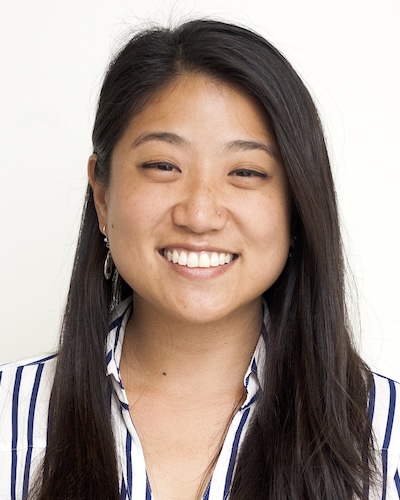
No OT to shadow? No worries! ⟩
September 6, 2017, by Erika
To those of you who are currently in or still need to complete the mental health immersion, this blog post is for you. Many of you have concerns about not having an OT to shadow during your level I due to the limited number of mental health facilities that have OTs available. That’s a fair concern, I had the same one! Fear not, I’m here to say that I had a great experience in my level I even without an OT to shadow. It took a bit of a perspective shift but once I was able to allow the experience to reveal itself naturally, what I ended up gaining exceeded any expectations and fears I had going in.
During my first fieldwork placement during my first year, I was placed at Verdugo Hills Hospital’s geriatric psychiatric unit called Stepping Stones. I had the opportunity to observe both inpatient and outpatient settings which was quite a privilege. As with most mental health settings, there was no OT to shadow. Therefore, I was placed under the supervision of two recreational therapists and an art therapist in the inpatient unit as well as two social workers in the outpatient unit.
Here is what made my mental health experience so valuable even without an OT to shadow:
- I learned what professions are already well established in mental health, what they do, and how OT can provide additional value. Before this fieldwork, I didn’t know much about mental health. I just assumed that if someone had mental health issues, they’d see a psychologist. Through this fieldwork, I had the opportunity to observe interventions done by recreational therapists, an art therapist, and social workers and how they played their parts in assisting patients across the progress of their illness. I learned that in art therapy, you would choose mediums (markers vs. paints vs. colored pencils) according to the patients’ cognitive levels and abilities as well as the psychological significance of certain colors! I learned that social workers have the authority to diagnose and observed how they engaged clients in group talk therapy. Best of all, I was able to execute OT sensory and cognitive interventions and inform the other professions on what value we could bring to what they were already doing. It was a beautiful exchange of thought across professions and a shared passion of service to this population.
- I was able to get exposed to all mental health settings through the experiences of my peers and in turn, reduce stigma that I personally associated with mental health. Since there are few OTs to shadow, mental health is the only immersion in which weekly fieldwork debriefs are set up with peers and a faculty member during class time. I think that most of my classmates would agree that this served as being one of the most helpful resources. We were placed with the same group all semester in which each member was placed in a different mental health setting so we got firsthand experiences of what each setting entailed. What a way to learn! It provided an open platform to not only share in each other’s concerns and successes but gave us a deeper lens into the mental health community. These debriefs equipped us with awareness and compassion, and in turn, helped debunk any stigmas that we initially came into the course with.
- USC faculty support is top notch. Even with the lack of OT in my settings, there was never a time that I didn’t feel supported by USC faculty. With such breadth of experience, you are bound to find a faculty member that has practiced in the setting you’ve been placed in (inpatient, outpatient, full service partnership, wellness center, clubhouse, etc.). I was able to reach out to faculty members and pick their brains about possible interventions to try out, success stories, horror stories, etc. just to feel a bit more comfortable in understanding OTs role in my specific setting. This experience opened doors to forming relationships with faculty who I now see as mentors that I feel comfortable reaching out to for guidance throughout school and my future career.
- Developing my therapeutic use of self. Even without an OT, this fieldwork placement was a great opportunity to observe the variance in how my supervisors, as therapists, utilized their own therapeutic uses of self. Everyone has their own gifts, ways of communicating, and backgrounds that contribute to how they practice and work with clients. It was fascinating to see how one recreational therapist Carl*, who I called the Zen master, would engage patients vs. another, Yuko*, who was bubbly and charismatic. They were so different and yet, their concern and care for every patient was expressed and equally well received. This made me really reflect on the fact that there is no one way to be a successful therapist. I began to observe my own therapeutic use of self and develop my own style of practice utilizing my own authentic experiences and gifts.
I know this post was a bit of a big boy but thank you for reading. Hopefully, I’ve been able to alleviate some fears or at least provide a change in perspective on what else you could look forward to during your level I mental health fieldwork placement. At the end of the day, with all your fears, questions, or concerns, know that there is faculty close by, peers going through the same thing, and new and interesting perspectives that lie untapped with your supervising mental health professionals that might provide more insight into your own value and practice with this population. Level I placements are meant solely as a means to observe so OPEN YOUR EYES — you may be surprised by what you end up learning.
*All names mentioned in this blogpost are pseudonyms.
⋯
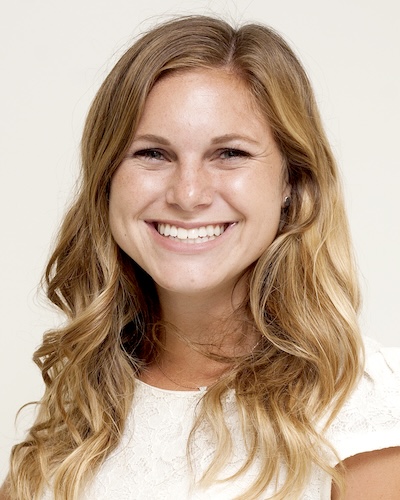
Back to School Again ⟩
September 4, 2017, by Ali
One way in particular that makes the Chan Division of Occupational Science and Occupational Therapy so unique is the Professional Program Course Sequence. As a Bachelor’s to Master’s student, I have had limited time out in the field as most of my life up to this point has been spent in the classroom. With level I fieldwork imbedded in our coursework each semester I have been exposed to pieces of occupational therapy that are exciting and eye-opening, but in the midst of exams, quizzes, group projects, presentations, and research papers at times over the last year I felt distant from the profession I know I will love.
This summer changed everything. With level II fieldwork I fell in love with occupational therapy on a whole new level. I was placed at a private practice in Half Moon Bay, California. My first day of fieldwork I was so nervous and anxious about what the next twelve weeks would have in store, but upon walking into the clinic I knew that I was in the right place. My site was a home converted into a pediatric speech and occupational therapy practice with families waiting in the living room. I learned more about using myself as a tool for therapy, what it means to be family centered, and the ins and outs of running a private practice than I thought possible.
Throughout my twelve weeks I transitioned from shadowing my clinical instructor to treating her full caseload. I completed treatment plans, interventions, and progress notes. Through projects assigned to me by my clinical instructor such as an in-service, case study, research projects, and readings I was able to maintain an evidence based practice and ensure I was providing the best treatment possible for my clients.
I have come back to school rejuvenated feeling more confident in my abilities as an occupational therapist and know that I will soon be working in a clinic that I love, where day in and day out I am helping my clients live their happiest and healthiest lives. I am now ready for another year of school in order to get there!
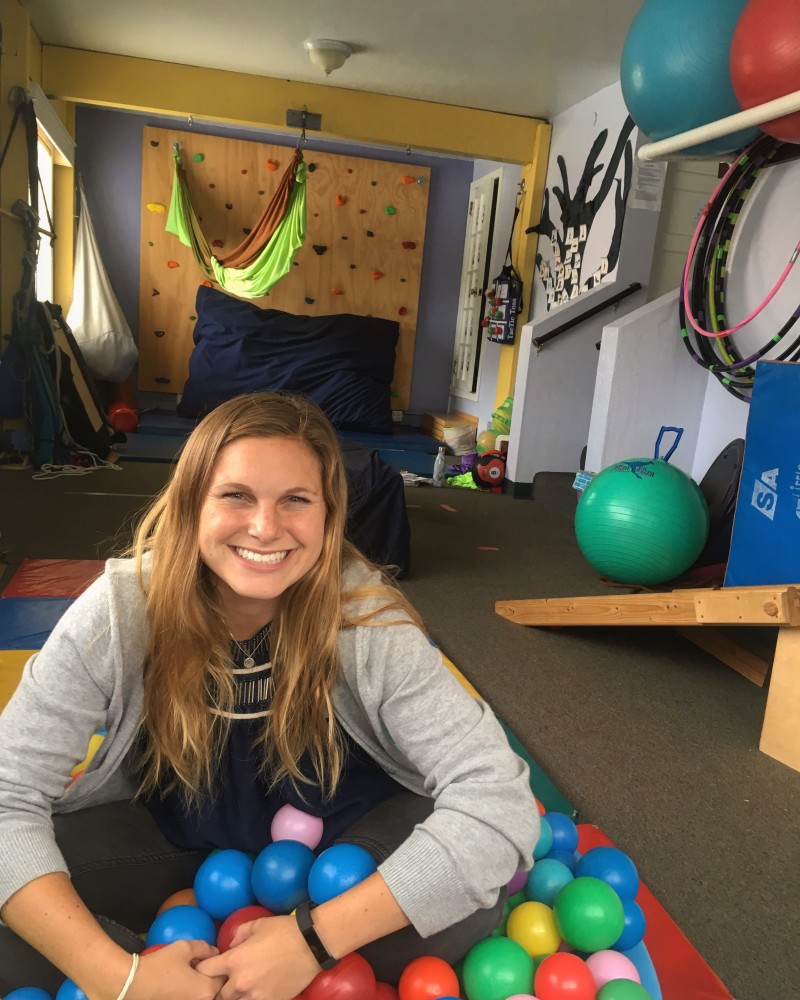
⋯
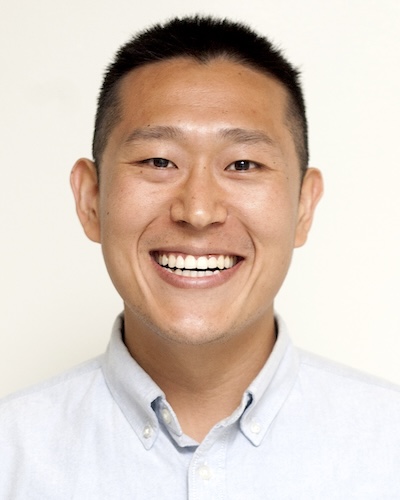
2010 NBA Champions ⟩
September 1, 2017, by Bryan
The first question Joe (pseudonym) asked me was whether or not I thought the Los Angeles Lakers would win the NBA championship this year.
“Not a chance” I replied before noticing his purple and gold 2010 NBA CHAMPIONSHIPS LOS ANGELES LAKERS shirt.
“That’s whack man,” Joe said.
He did not talk to me the rest of my first day at my very first Level 1 Fieldwork.
My first Level 1 Fieldwork placement was at Mychal’s Learning Place in Hawthorne CA. Mychal’s is a clubhouse setting that offers day programs for adults with developmental disabilities, equipping them with self-care and job skills in order to foster independence. Mychal’s has an onsite washer and dryer, fully functional industrial kitchen, as well as other opportunities to teach and practice ADLs. There was, however, no OT onsite, so my colleagues who were also placed at Mychal’s and I had to be proactive to see how OT fit into this setting and population.
After a whirlwind first day of orientations and getting to know the facilities, I volunteered to assist with an awesome opportunity at Mychal’s, their Howl at the Moon café, which functions as a mobile coffee and pastry retailer. Howl has partnerships with MATTEL headquarters nearby and sets up shop twice a week to sell and serve coffee to the employees. The coolest part of Howl was that Mychal’s participants did almost everything from taking orders, making drinks (fancy lattes, cappuccinos, everything!) and even cooking the pastries. It was incredible to see how much Mychal’s believed in its participants. While I loved my experience there, throughout the semester I was still unsure of an OT’s role in this setting.
Joe and I were both assigned to Howl a couple weeks into fieldwork. We did not get the opportunity to converse since our first meeting and I was a little nervous to break the ice again.
“So . . . do you like basketball?” I asked before noticing the same purple and gold 2010 NBA CHAMPIONSHIP LOS ANGELES LAKERS shirt (PSA: Use your clinical observation skills people).
Joe nodded while preparing a pumpkin spice latte.
“Who do you think is going to win this year?” I asked.
Joe paused midway, while pouring the steamed milk and let out a sigh. “Probably the Warriors,” he responded.
I was confused at his overtly disappointed response and had to ask what was wrong.
It is amazing how a simple question diving deeper can help us understand our clients, and each other, better. In school they teach us two valuable concepts that are foundational to our OT practice: mindfulness and therapeutic use of self. While conceding my lack of mindfulness in noticing Joe’s apparent interests from his attire, I saw these two abstract concepts produce concrete fruit as Joe shared about his background and how the Lakers were an uplifting part of his life growing up. He looked up to Kobe (the GOAT) and Pau as heroes, sad to see them disband and the team rebuild. It was so interesting that Joe and I could connect on something as so seemingly simple as shared sports interests.
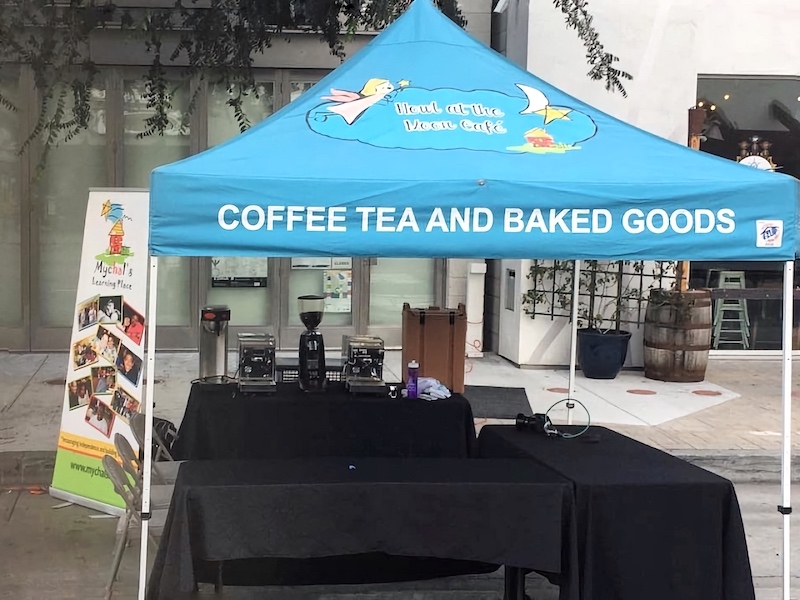
Howl at the Moon’s tent display
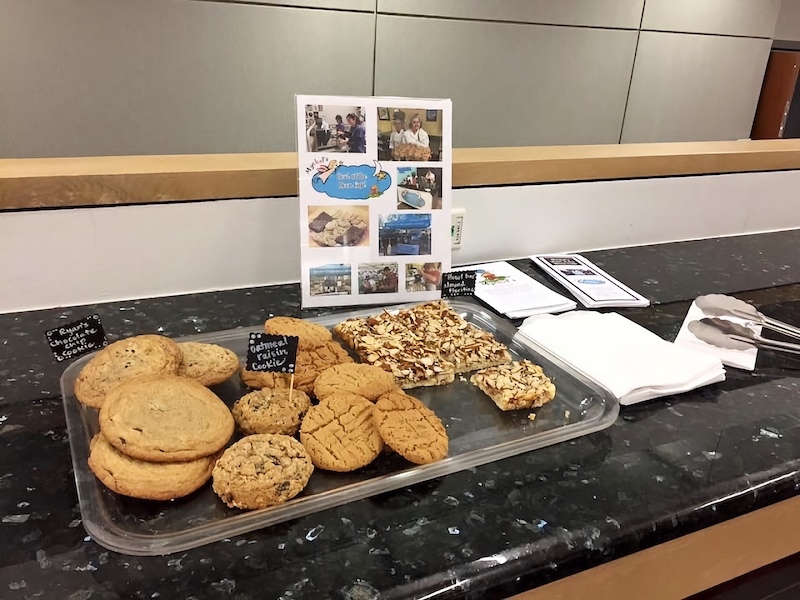
Howl at the Moon cookies

Handmade pastries by Mychal’s participants
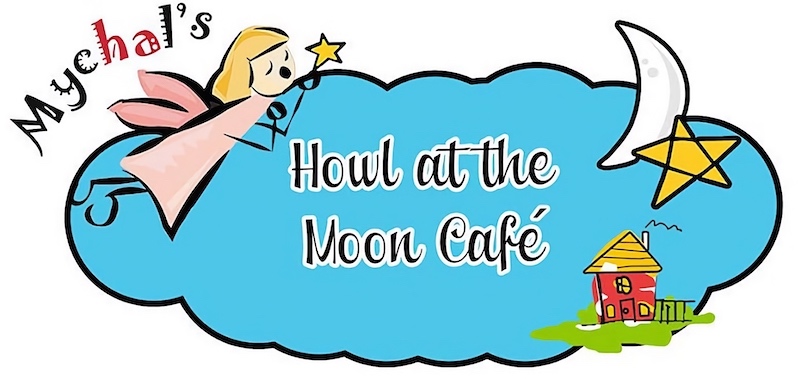
⋯
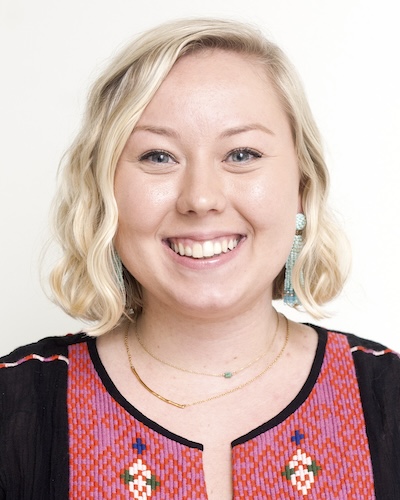
Back to School Excitement ⟩
August 30, 2017, by Caroline
I love the excitement that comes with a new school year! Growing up, I always looked forward to the annual tradition of back-to-school shopping with my mom and sister — pens, notebooks, and flashcards galore! At the start of a new year, I delight in filling my planner with color-coded assignments, due dates, and obligations . . . though looking at everything I have to accomplish over the semester can be slightly stress-inducing. One week at a time, Caroline, one week at a time.
These first couple weeks back at school were particularly exciting, as I got to reconnect with all of my classmates after we’ve all completed our first 12-week Level II Fieldwork experiences. It was very cool to hear about all of the different settings my classmates were working in: hospitals, pediatric clinics, schools, nursing homes, rehabilitation centers, skilled nursing facilities, community mental health sites, inpatient psychiatric sites, home health, and more! My classmates have shared about their challenges, their successes, and (my favorite) their A-ha! moments. I have noticed a newfound confidence my classmates have gained after spending 12 weeks in the field, moving towards the comfort level that an entry-level OT practitioner has.
Because some of my friends chose to do their fieldwork placements out of the area for the summer, we decided to do a potluck brunch on the first morning of school to celebrate our reunion and the beginning of another school year! One of my friends lives in Currie Hall, a student apartment on our Health Sciences Campus, so it was incredibly convenient! We also got to check out the Solar Eclipse from her balcony (though to be honest, not sure what I was looking at. Good thing I went into OT and not Astronomy). It was a fun morning catching up, reflecting on our summers, and getting excited for the upcoming school year.
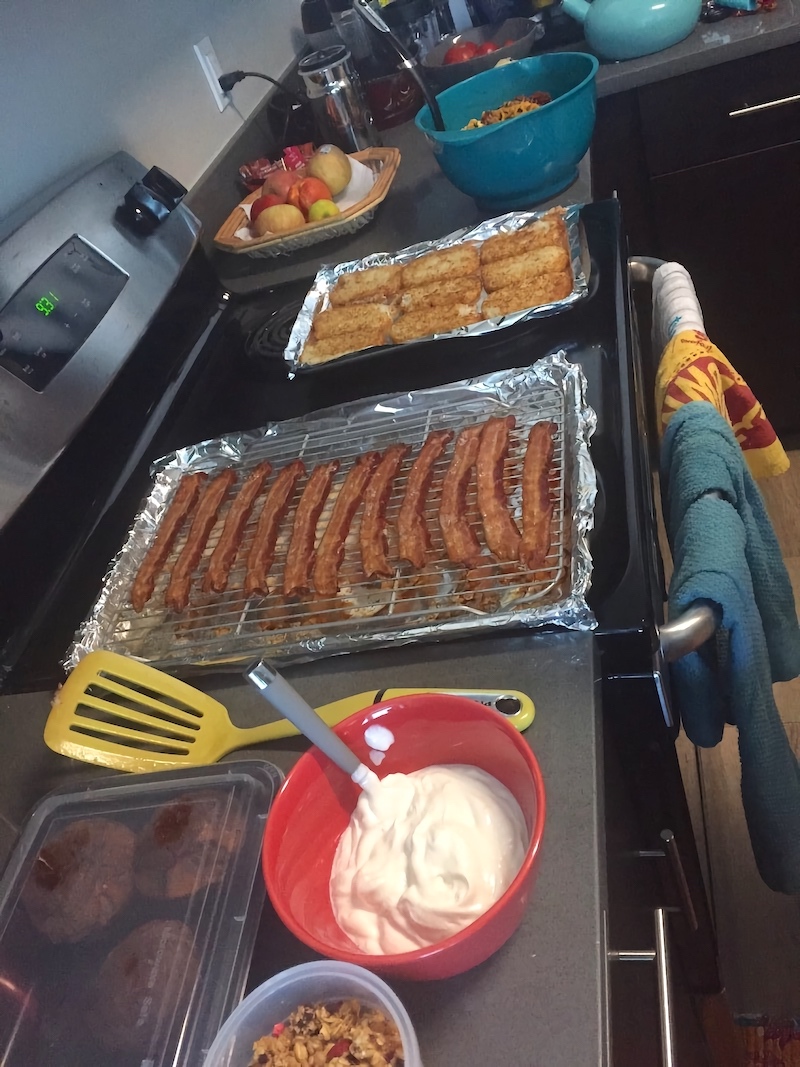
I am in Cohort A, so this fall semester, I’m taking OT503 the Pediatrics immersion course, which I am really looking forward to. In addition to Pediatrics, all of the second year students and I are taking the following courses: OT 534: Health Promotion and Wellness, OT537: Occupation-Centered Programs for the Community, and OT 538: Current Issues in Practice: Adulthood & Aging. Pediatrics, aging, programming, and wellness — if that isn’t a testament to the diversity of our profession and its scope, I don’t know what is! Check out our course sequence if you’re interested in the rest of the courses in the program, and follow along this semester as I work my way through these courses and all of the assignments in my fresh new planner!
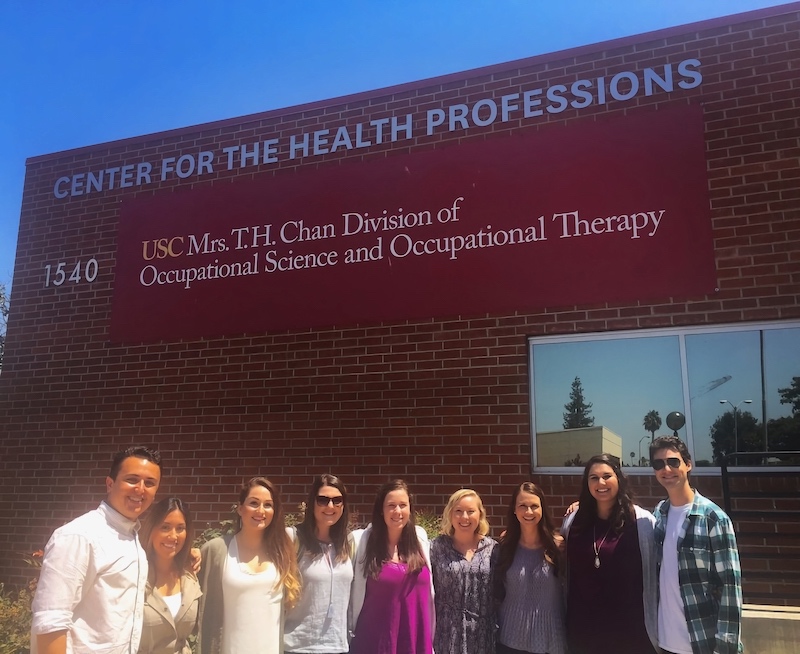
⋯





